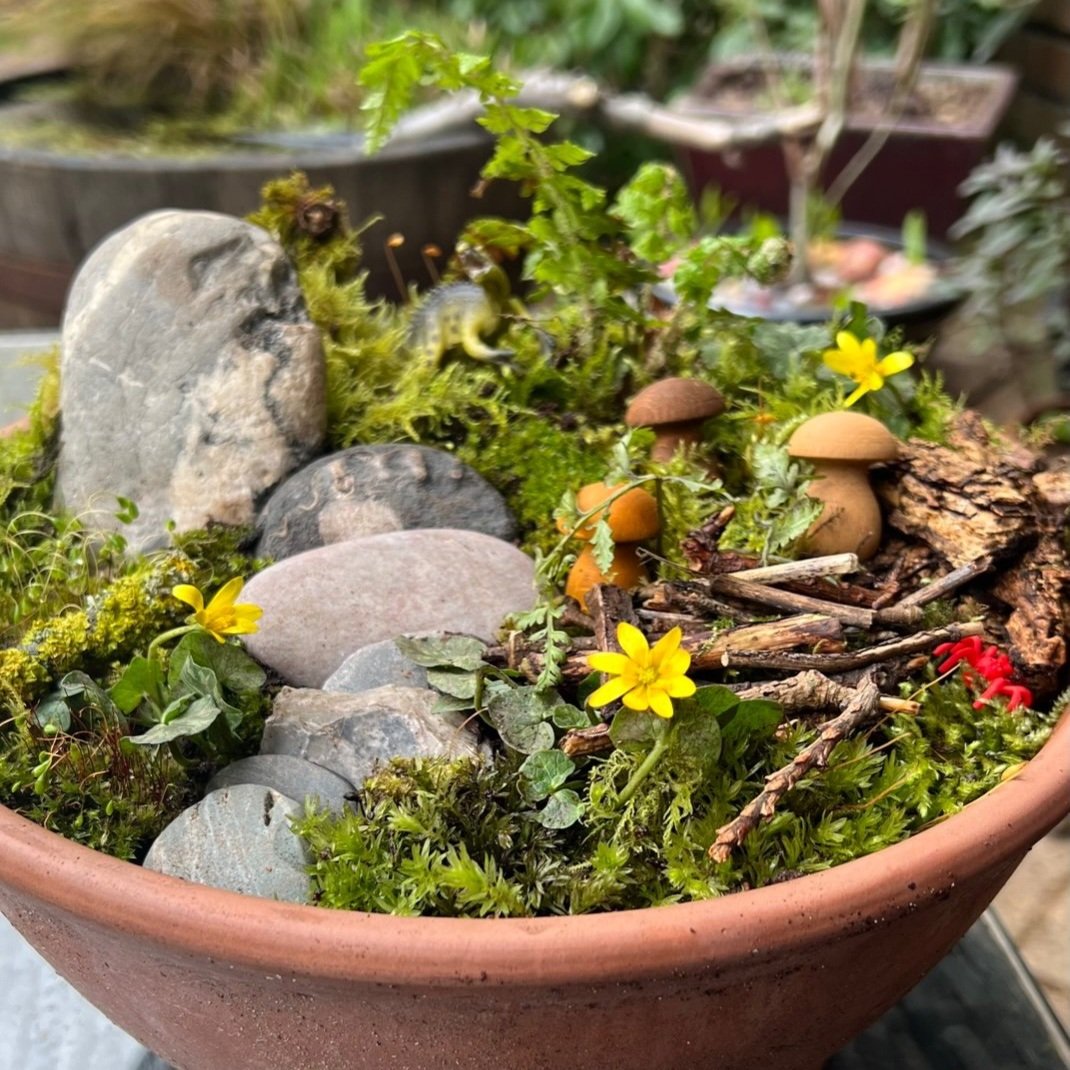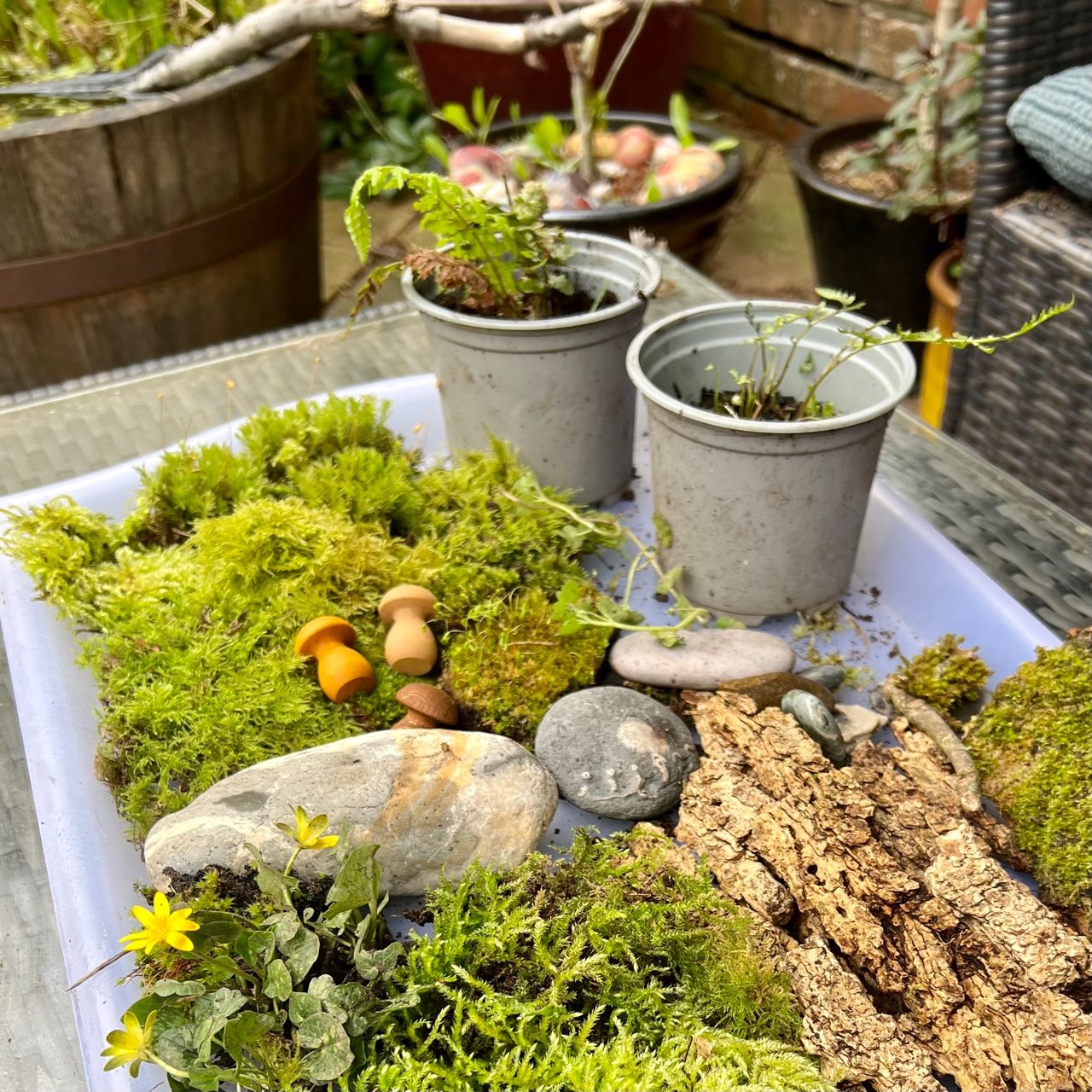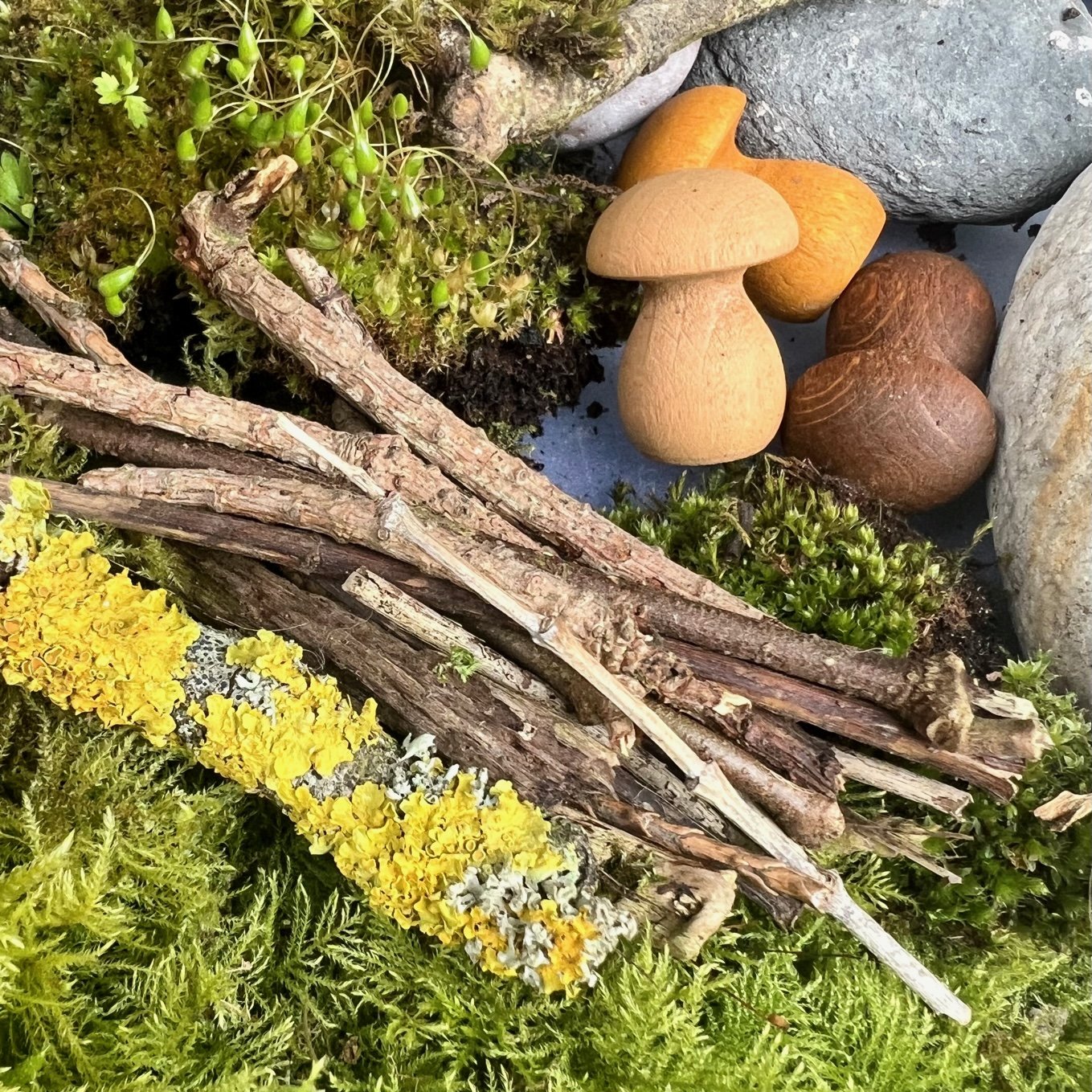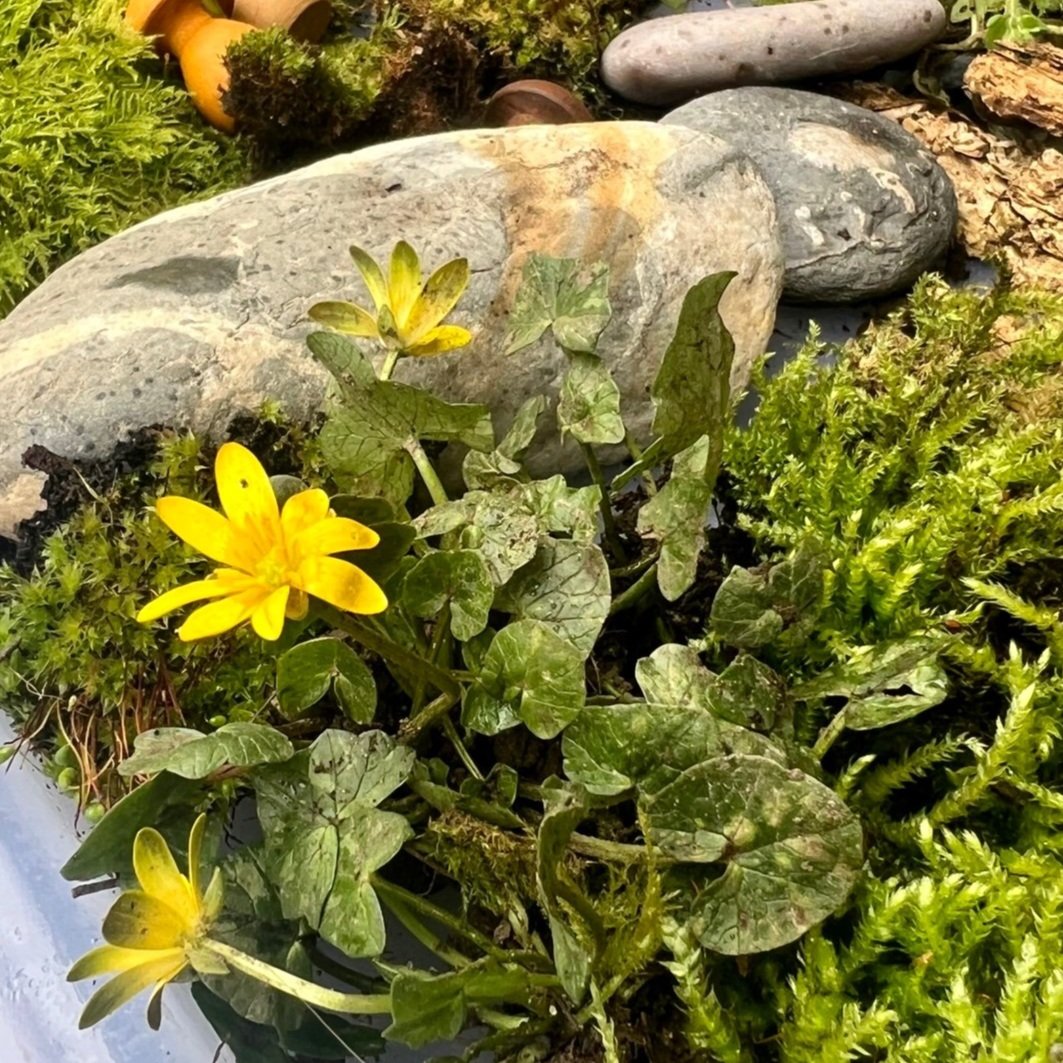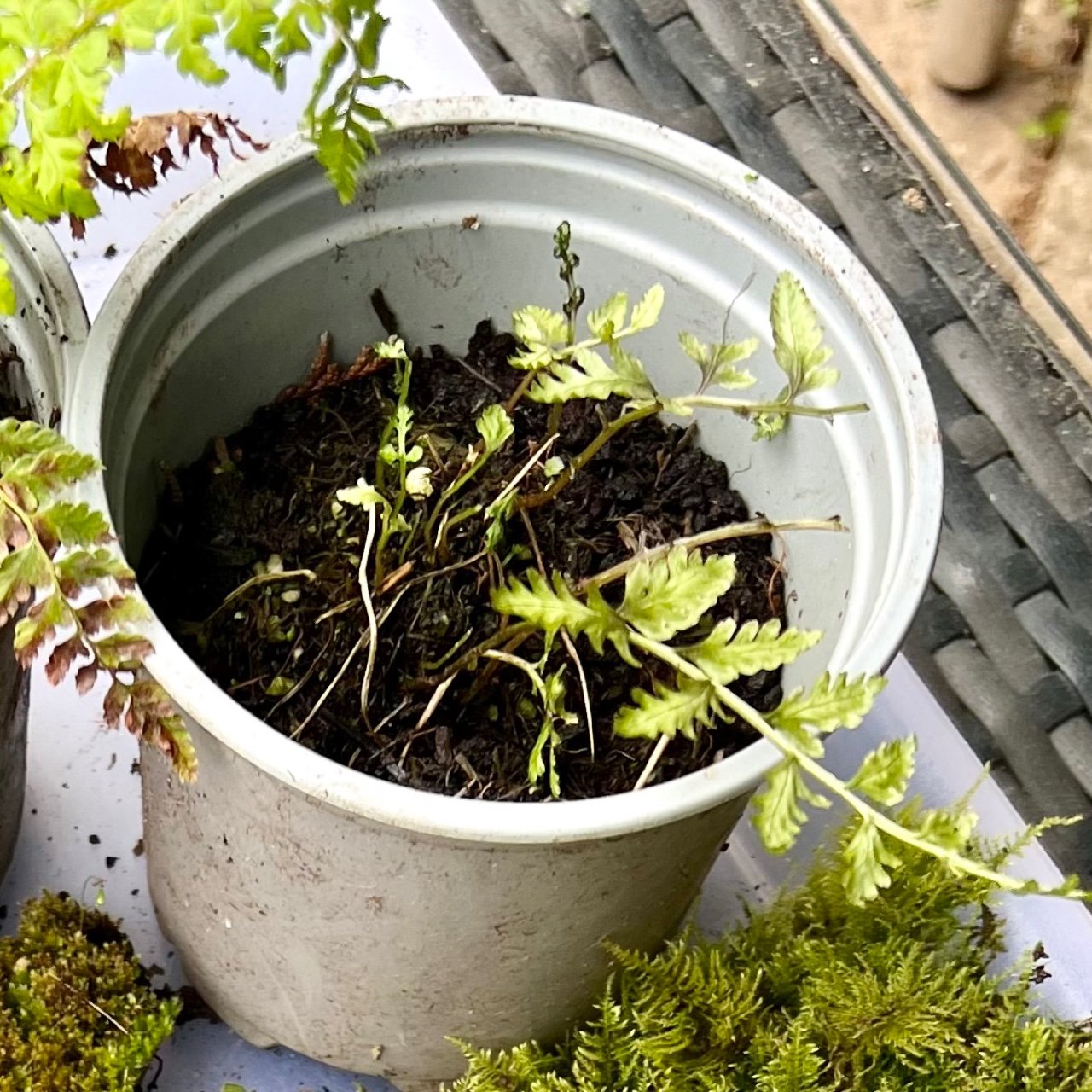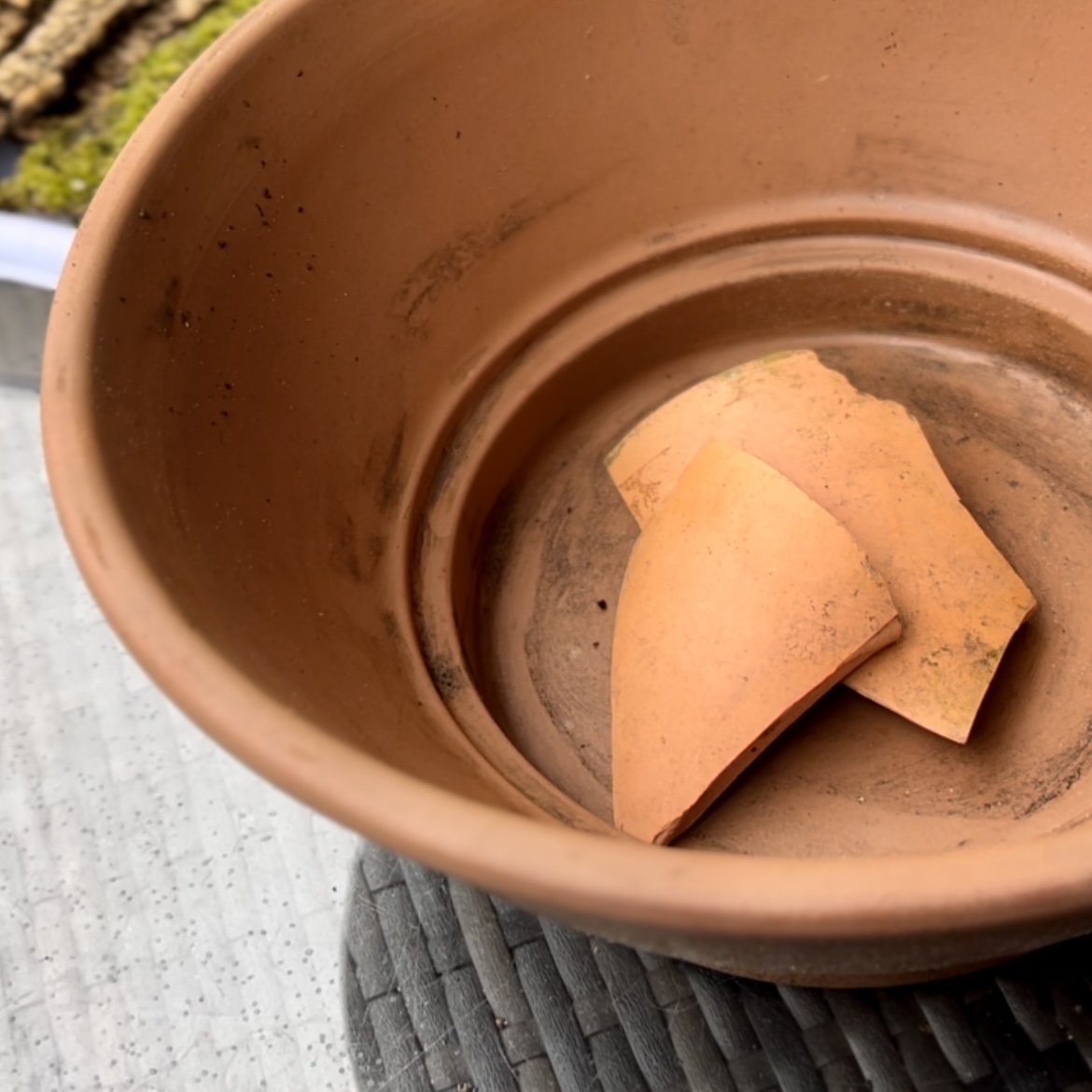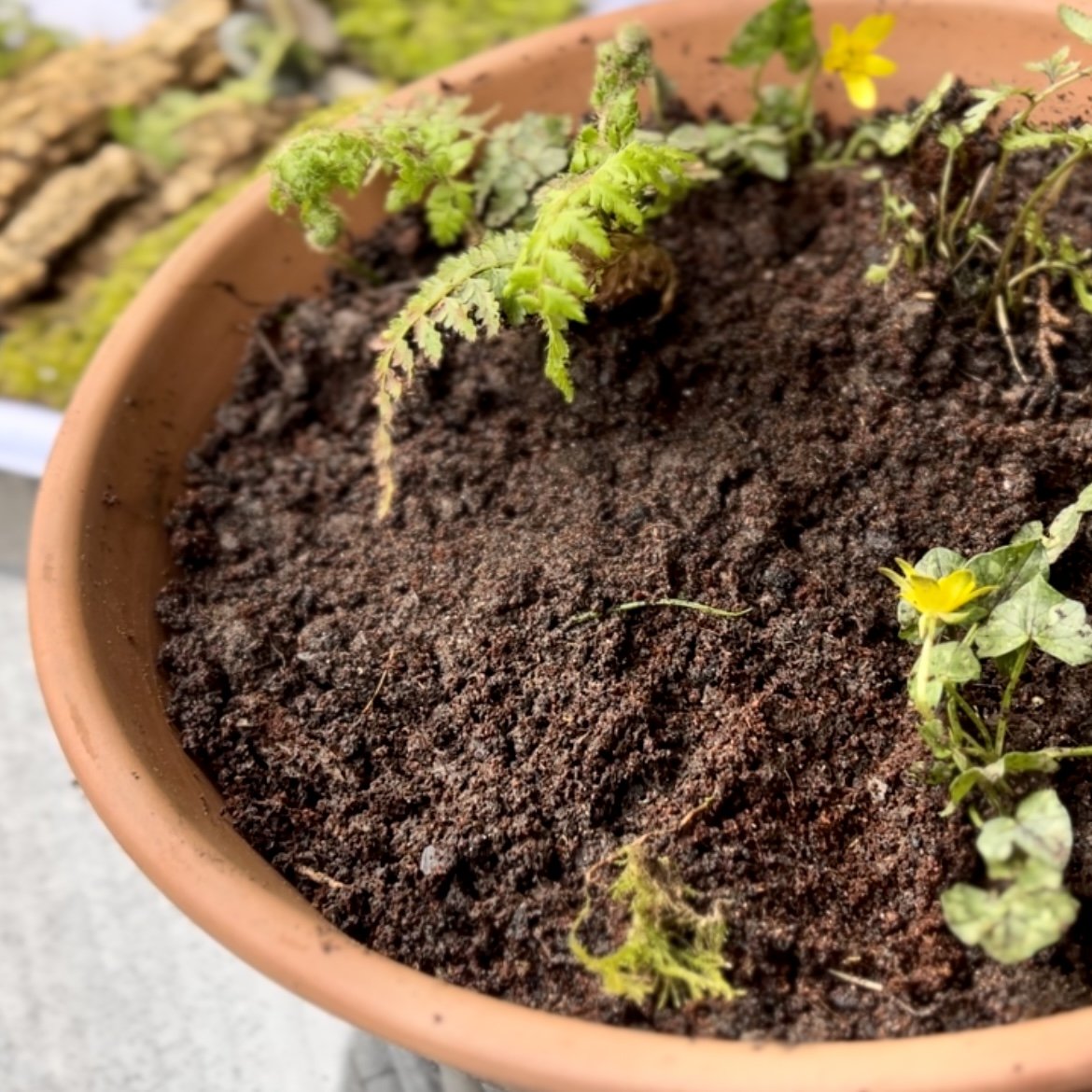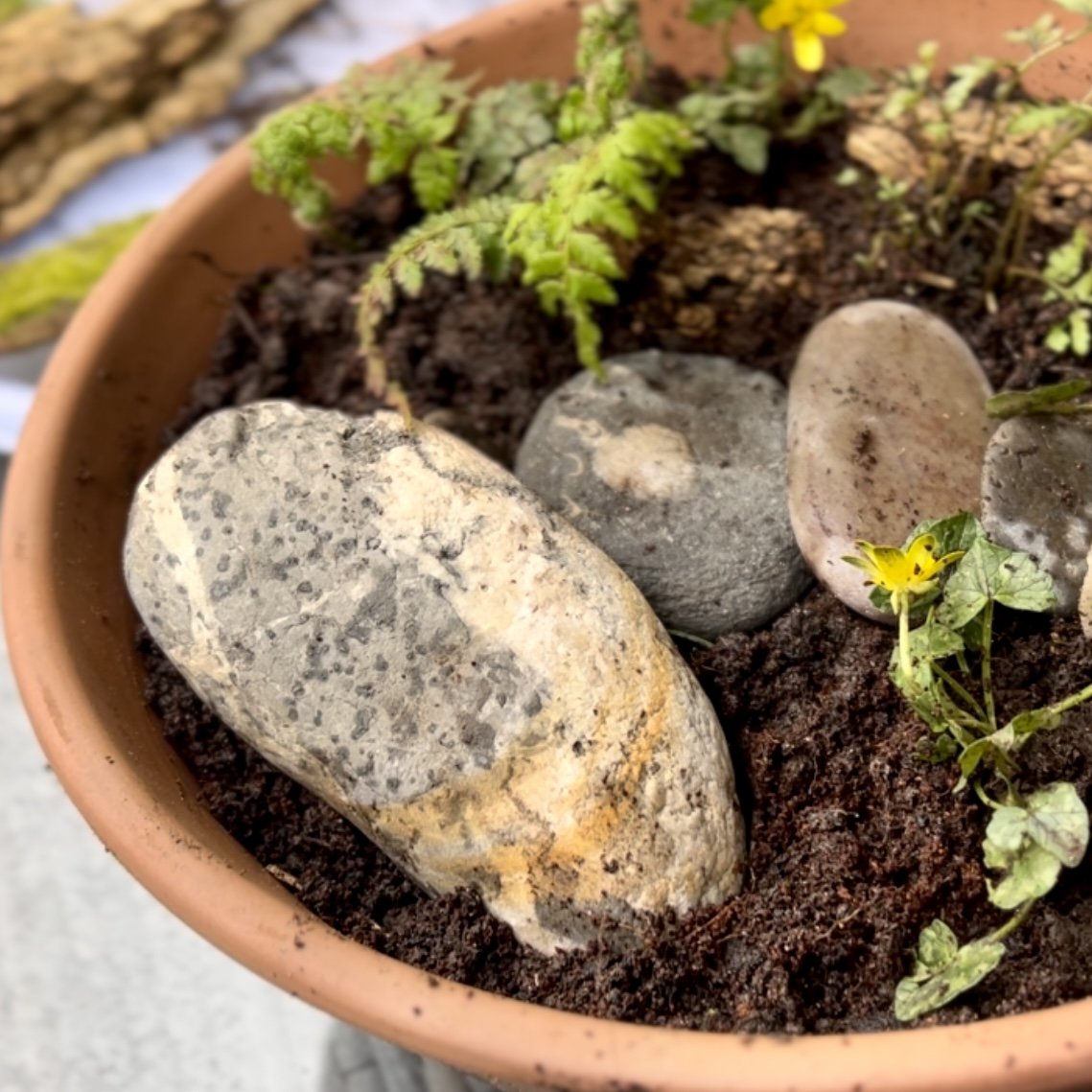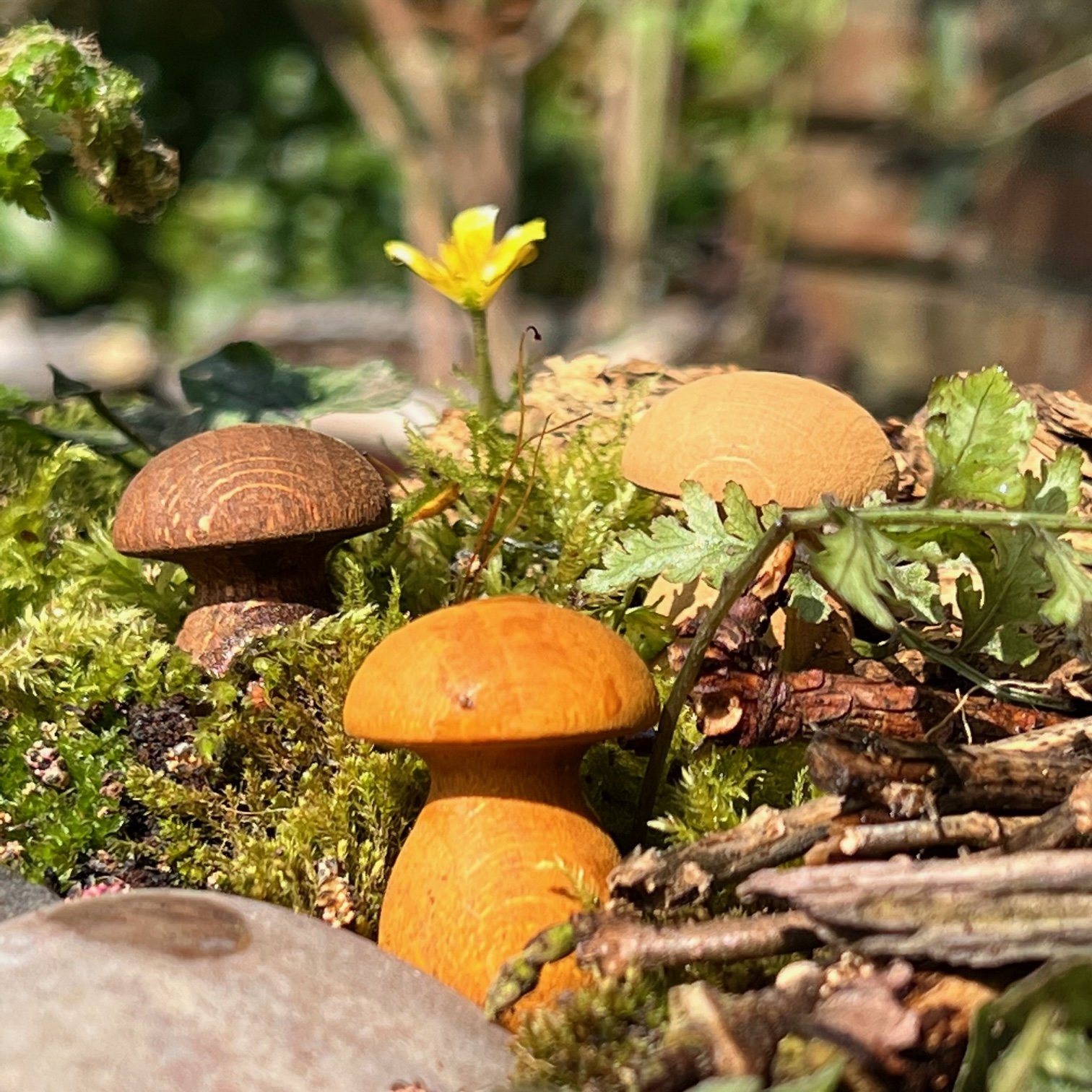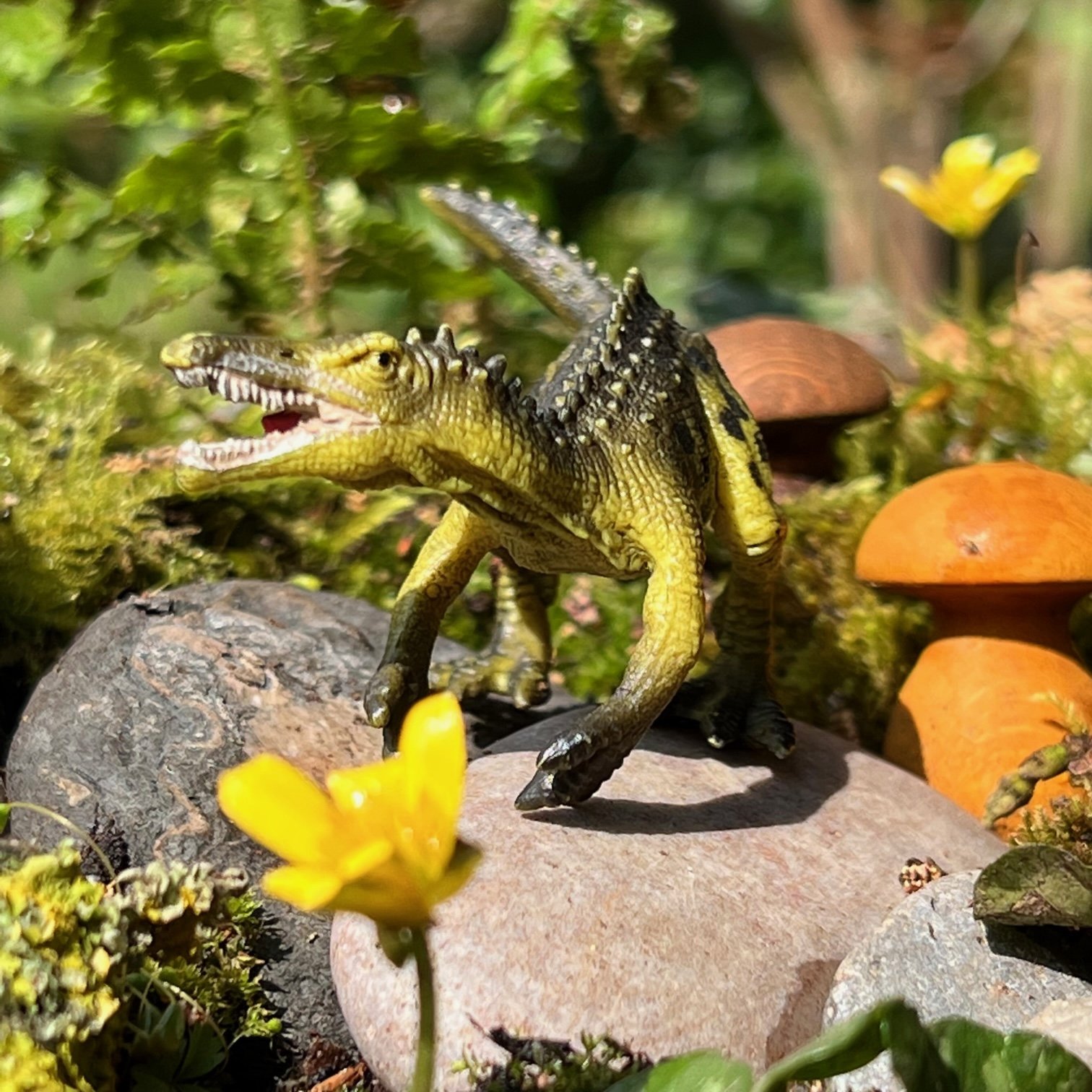Make a miniature woodland garden
Making a miniature woodland garden is a great way to bring a bit of the woodland into your own garden as well as creating a fun space for small world play. One of my favourite childhood memories is making miniature gardens in small patches of soil or old containers so this is definitely an activity that you can enjoy with your children or on your own (which I did!).
What you will need:
A shallow planter
Crocks (pieces of broken pots) or stones for drainage
Compost
Moss
Small sticks
Old tree bark
Stones or pebbles
Small ferns
Small flowering plants
Decorative items and small world toys
What you need to do:
Go for a walk and collect some interesting-looking stones, twigs and old bark. Try and keep in mind the size of your planter when selecting your nature items.
Find a shady area of your garden and see if you have any moss growing in plants pots or in your grass which you can harvest. You might also find it growing in between paving slabs, on shady walls and trees and even in your gutters!
You may also find some small plants in your garden that you could use in your miniature woodland garden. I have a small, shady corner in my garden where I have piled a few old logs and have generally left it to go wild so I was able to find these beautiful yellow flowering plants which are, I think, lesser celandine which are in the buttercup family.
If you have any small ferns, these can easily be propagated by separating any smaller plantlets from the mother plant or by dividing the main plant.
If you don’t have any of these woodland plants already, then you should be able to find some at a garden centre or plant nursery for only a few pounds.
Other flowering plants that would work well include English bluebells which can be planted in late spring, ‘in the green’ (during active growth), or snowdrops which are best planted in the green just after flowering. Wild primrose, wood anemone, wood sorrel and dog violet are other low growing plants which would look lovely.
To make your miniature woodland garden, start by placing a few crocks loosely at the bottom of your planter over the drainage hole. This is to make sure the soil doesn’t clog up the drainage hole. If you don’t have any old broken pots, you can use some stones.
Half fill your planter with compost and gently firm it down.
Before you start adding your plants and nature items, have a rough plan about where everything should go. If you will only be viewing the finished plant pot from one side, then you might want to place the taller plants and larger stones at the back of the pot. If you will be able to see it from all around, you could put them in the middle.
Place your ferns and flowering plants on top of the compost, making sure there is about 5cm or so from the bottom of the plants to the top of the planter. Once you are happy with their position, fill in the gaps around the plants with more compost.
Now place your larger stones or pieces of wood. You could use them to make a path or a cave!
Cover the rest of your miniature garden with a layer of moss, patting it down so that it is fully in contact with the compost.
Add the rest of your nature items - small twigs can be stacked to make a log pile, gnarly sticks could become trees. You could even make a little den!
Give your miniature garden a water to keep it nice and moist.
Now you can add some decorative bits and small world toys - little people, dinosaurs, animals etc. I added a dinosaur and a rather venomous looking Lego spider though I’m pretty sure they’ll have lots of company once my children discover this miniature garden!
I also added these gorgeous wooden mushrooms that were from a previous Mud & Bloom box, used in a fairy garden activity, and I’ve been really keen to use them in another project since.
Place your miniature woodland garden somewhere in dappled shade and keep it nice and moist.
If you have fun making a miniature woodland garden, you could also try making gardens with different themes - perhaps a miniature cottage garden or a beach-themed garden. So much fun!
Author: Denise Hope, home educating mum of two boys

